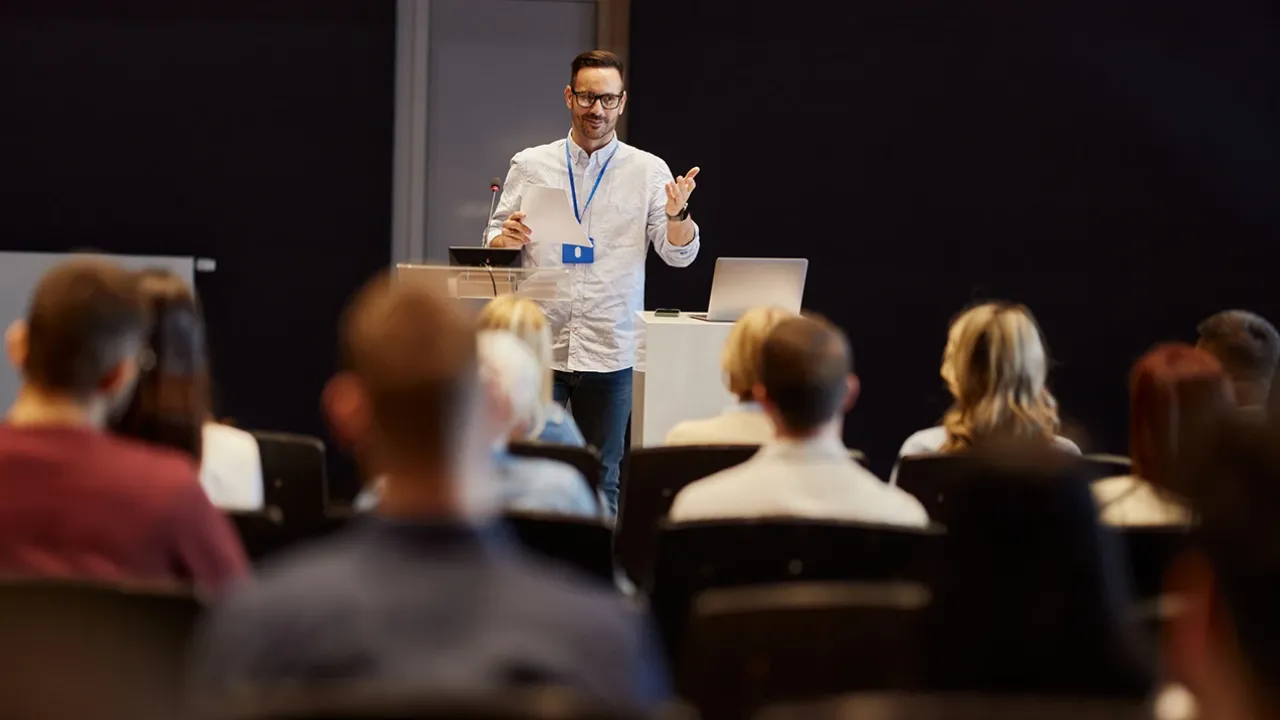Insight from a CTO at the Bloomberg Tech Conference 2025
At the recent Bloomberg Tech event in San Francisco, I had the opportunity to attend a great session on how humans and artificial intelligence (AI) will work together in the future.
The conversation among tech leaders focused on how:
- We are upskilling our teams with AI
- We’re measuring the success of those programs (no 2 companies are doing it the same way)
- Current economic uncertainty is driving strategic business decisions around AI
The session was also attended by some current college students who shifted the trajectory of the conversation when they asked,
“What does being an employed adult look like for me?”
This sparked a great discussion about the kinds of skills employers look for in college graduates, with a surprising amount of agreement among us technology executives. The general guidance was to take ownership of your own education – if your university isn’t teaching you how to use generative AI productively, you need to teach yourself. Not because it’s the job you will apply for, but because no job will be accessible to you without this basic skill. You can’t rely on your university’s faculty to give you that job preparedness guidance.
Generative AI is still new, but already an expected skill
It was a little surprising (as someone who wants to adopt new technology faster than the average person), but the consensus in the room was that despite the relative newness of the technology, familiarity and competency with generative AI is already expected of a new hire. It seems that many companies anticipate new talent will be competent with generative AI on par with any basic computer skill, like building a spreadsheet.
No one in the room advocated for AI skills as a differentiator, but rather that students should understand AI well enough to emphasize their skills that AI cannot deliver. Proficiency with technology can be taught, but many of the skills employers look for in college graduates are innate qualities. Think of the human element in business and how this manifests, namely design and presentation skills, but also empathy and curiosity.
AI might be transforming the way we work, but it can’t foster connections and open communication the way that people can. New graduates don’t have to directly compete with AI, they just need to know how to use this technology to leverage their human strengths in the professional world.
Advice for college graduates about entering the job market
As the conversation evolved, guidance was given toward resetting expectations of where college graduates might work, and what they might do. Students were encouraged to apply beyond just the marquee tech companies. Rather, there was emphasis on applying to smaller companies and start-ups, where the initial salary may not be as high, but more guidance and mentoring will be available.
The benefit (in these smaller work environments) is that recent graduates can develop critical personal and professional skills that will set a strong foundation for their career path. It struck me that what my peers and I were really advocating for was not so much an adjustment to our current educational structure, but a realignment to a mentorship model. This reinforces the importance of nurturing the “soft skills” employers look for in college graduates, like time management, critical thinking, and collaboration.
As AI continues to impact what work is done and by whom, we are certainly seeing that increasing throughput at the “junior” level of an organization is creating a bottleneck at the “senior” levels. This could look like developers getting more code checked in faster, which means more architects will be needed to review and refactor AI-generated code for deployment.
This implies that the traditional pyramid structure of teams will evolve into a column, approaching a 1:1 relationship of junior/senior resources in the organization. This reshaping will maximize both the potential of AI and the decidedly human contributions the rest of us will make.
Words of encouragement and advice for college graduates
If you are a college student today, and trying to find a job in the future feels bleak, I would encourage you to take heart. Heading into an unknown job landscape can stoke stress and anxiety, of course, but our current moment is not necessarily a new norm. And it’s not a new phenomenon for college graduates, either. The college graduates of 2008 and 2009 faced similar difficulties, as did the graduates of 2020.
Many companies in the session had scaled down their internship programs and new hires for the summer, but few had intentions of keeping those numbers down over time. This gave me a new appreciation for the fact that CAI did not have to reduce our summer internship program, in any way.
The current economic uncertainty is forcing a lot of companies to recalibrate right now, but this is not the first time our economy has seen such a recalibration. Like those times before, I think we will get through it.
Yes, it’s a tough time to hit the market, but it’s time to apply to more jobs, not fewer.
Yes, generative AI is an inevitable aspect of most jobs, but if your university hasn’t taught you how to use it, you can teach yourself.
There are plenty of great companies out there, looking for new skills from enthusiastic young people to join their teams and invest in their careers—rest assured, that is something AI cannot replicate.




